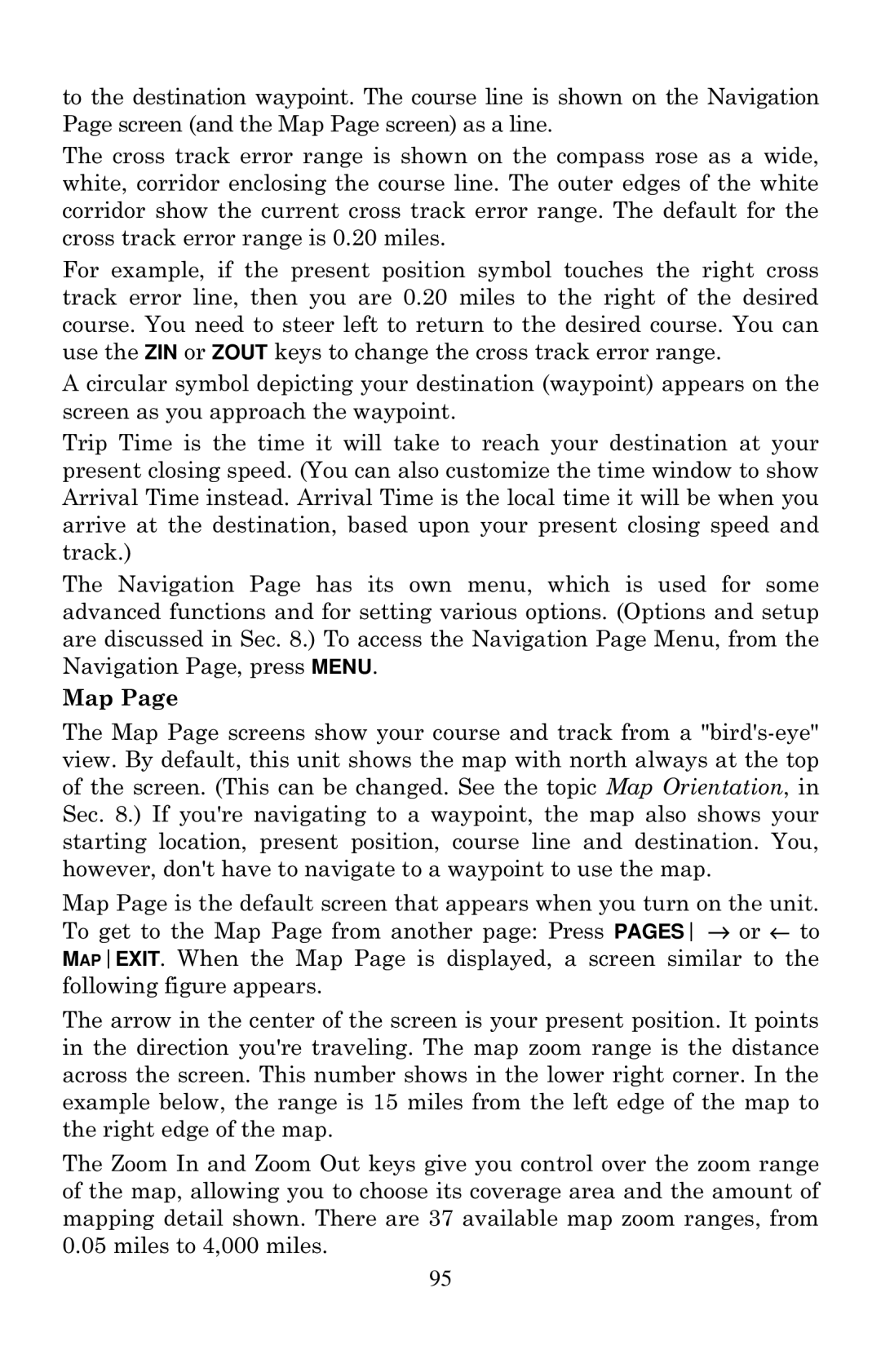to the destination waypoint. The course line is shown on the Navigation Page screen (and the Map Page screen) as a line.
The cross track error range is shown on the compass rose as a wide, white, corridor enclosing the course line. The outer edges of the white corridor show the current cross track error range. The default for the cross track error range is 0.20 miles.
For example, if the present position symbol touches the right cross track error line, then you are 0.20 miles to the right of the desired course. You need to steer left to return to the desired course. You can use the ZIN or ZOUT keys to change the cross track error range.
A circular symbol depicting your destination (waypoint) appears on the screen as you approach the waypoint.
Trip Time is the time it will take to reach your destination at your present closing speed. (You can also customize the time window to show Arrival Time instead. Arrival Time is the local time it will be when you arrive at the destination, based upon your present closing speed and track.)
The Navigation Page has its own menu, which is used for some advanced functions and for setting various options. (Options and setup are discussed in Sec. 8.) To access the Navigation Page Menu, from the Navigation Page, press MENU.
Map Page
The Map Page screens show your course and track from a
Map Page is the default screen that appears when you turn on the unit. To get to the Map Page from another page: Press PAGES → or ← to MAPEXIT. When the Map Page is displayed, a screen similar to the following figure appears.
The arrow in the center of the screen is your present position. It points in the direction you're traveling. The map zoom range is the distance across the screen. This number shows in the lower right corner. In the example below, the range is 15 miles from the left edge of the map to the right edge of the map.
The Zoom In and Zoom Out keys give you control over the zoom range of the map, allowing you to choose its coverage area and the amount of mapping detail shown. There are 37 available map zoom ranges, from 0.05 miles to 4,000 miles.
95
